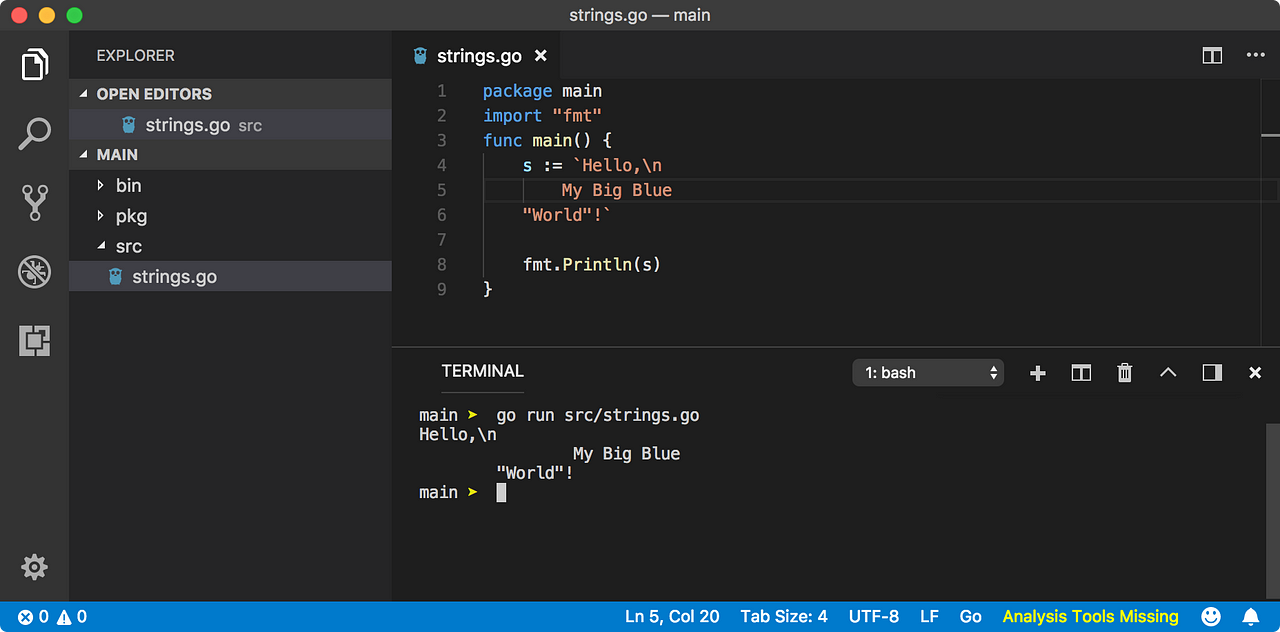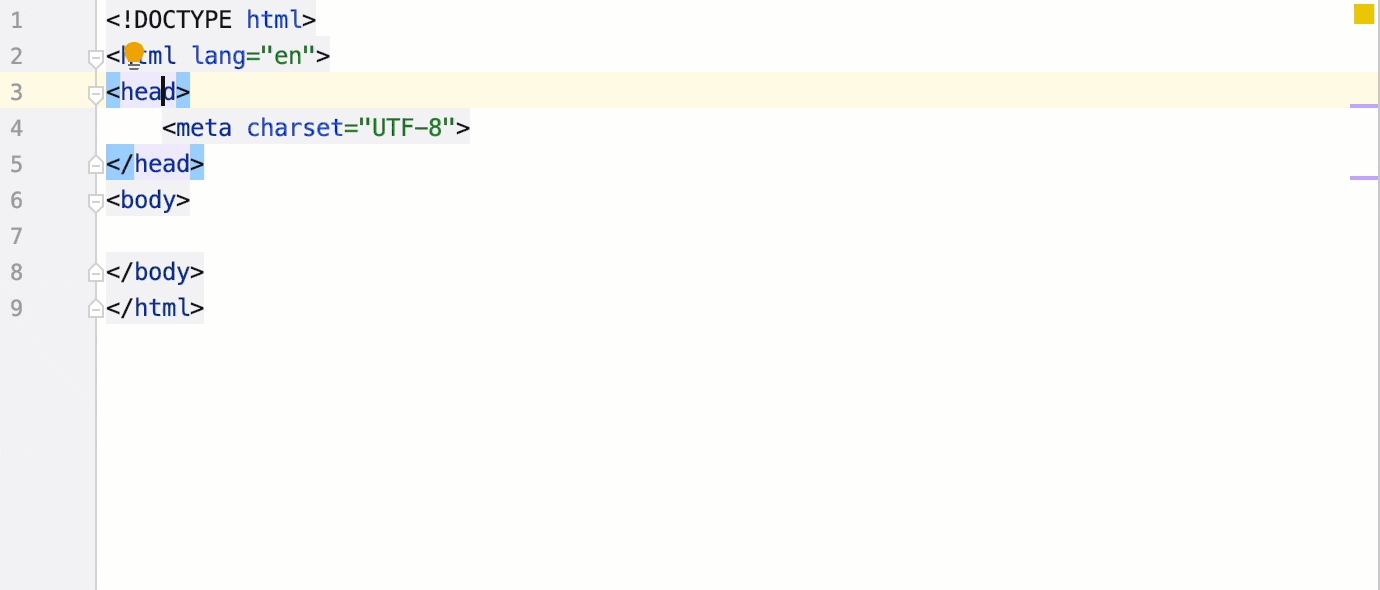Go Template String Contains
Go Template String Contains - Web go templates are a convenient tool for wrapping any text around any data. Web strings.contains function in golang is used to check the given letters present in the given string or not. Web 66 you can use printf in templates, which acts as fmt.sprintf. Refers to the data passed. This tutorial only uses functions universally provided inthe text/template package, and does not discuss the specifics of data access. Template.html(login) is a type conversion, it converts the string value login to type template.html. Web 1 this question already has answers here : Web parse parses the template definition string to construct a representation of the template for execution. We're looking for t*e*s*t (the *'s can be any characters and any length of characters. The text/template standard library provides the functions needed to parse our program: The text/template standard library provides the functions needed to parse our program: The basics templates are just regular text, with special actions delimited by { { and }} markers. This page documents some of that syntax, but see the language docs for full details. For generating an error message here and in html/template. Web go templates are a convenient tool. Type person struct { var name string var age int} simple struct definition for our person. Type templatefile struct { name string contents string } func createtestdir(files []templatefile) string { dir, err := os.mkdirtemp(, template) if err != nil { log.fatal(err) } for. Embedded template definitions are added to the treeset map. If the letter is present in the given. Template.html(login) is a type conversion, it converts the string value login to type template.html. Web go's template is designed to be extended by developers, and provides access todata objects and additional functions that are passed into the template engineprogrammatically. The text/template standard library provides the functions needed to parse our program: Web go templates strings are an incredibly powerful tool. Web definedtemplates returns a string listing the defined templates, prefixed by the string ; Web 1 this question already has answers here : They enable us to interpolate strings and data quickly and efficiently, while their advanced features enable us to create dynamic html views or even functions that can be reused across multiple projects. Template.html(login) is a type conversion,. Type templatefile struct { name string contents string } func createtestdir(files []templatefile) string { dir, err := os.mkdirtemp(, template) if err != nil { log.fatal(err) } for. Web package main import ( io log os path/filepath text/template ) // templatefile defines the contents of a template to be stored in a file, for testing. Web go templates are a convenient. Learn to use a few of the more common ones, as well as how to add custom fucntions to your templates so that you can add any functionality you need. Note that in the templates {{.}} prints all the template variables, and. { { printf %.*s 25.content }} { { printf %.25s.content }} you can also pass the number as. (5 answers) closed 3 years ago. The basics templates are just regular text, with special actions delimited by { { and }} markers. If either action delimiter string is empty, the default ({{ or }}) is used. Web strings.contains function in golang is used to check the given letters present in the given string or not. Web the template.parse() method. Web definedtemplates returns a string listing the defined templates, prefixed by the string ; Type person struct { var name string var age int} simple struct definition for our person. Tset string go search wildcard share improve this question follow edited oct 24, 2020 at 17:29 The basics templates are just regular text, with special actions delimited by { {. If the letter is present in the given string, then it will return true, otherwise, return false. Web go's template is designed to be extended by developers, and provides access to data objects and additional functions that are passed into the template engine programmatically. Learn to use a few of the more common ones, as well as how to add. Learn to use a few of the more common ones, as well as how to add custom fucntions to your templates so that you can add any functionality you need. Tset string go search wildcard share improve this question follow edited oct 24, 2020 at 17:29 Hello, { { print world }}! Web go templates are a convenient tool for. If the letter is present in the given string, then it will return true, otherwise, return false. Web 66 you can use printf in templates, which acts as fmt.sprintf. This page documents some of that syntax, but see the language docs for full details. Hello, { { print world }}! Web go templates are a convenient tool for wrapping any text around any data. Web syntax gomplate uses the syntax understood by the go language’s text/template package. The basics templates are just regular text, with special actions delimited by { { and }} markers. They enable us to interpolate strings and data quickly and efficiently, while their advanced features enable us to create dynamic html views or even functions that can be reused across multiple projects. How to get a map or list of template 'actions' from a parsed template? Web 1 this question already has answers here : Embedded template definitions are added to the treeset map. For generating an error message here and in html/template. Refers to the data passed. Web working with go text templates in this section, we’ll explore the features of the text/template package in go. I have code like below t, err := template.new (todos).parse (you have a task named \ { {.name}}\ with description:. Web strings.contains function in golang is used to check the given letters present in the given string or not. (5 answers) closed 3 years ago. Web definedtemplates returns a string listing the defined templates, prefixed by the string ; Web with go, how would you determine if a string contains a certain string that includes wildcards? This tutorial only uses functions universally provided in the text/template package, and does not discuss the specifics of data access. In your case truncating a string would be as easy as: Tset string go search wildcard share improve this question follow edited oct 24, 2020 at 17:29 We're looking for t*e*s*t (the *'s can be any characters and any length of characters. Web package main import ( io log os path/filepath text/template ) // templatefile defines the contents of a template to be stored in a file, for testing. If there are none, it returns the empty string. Web 1 this question already has answers here : Learn to use a few of the more common ones, as well as how to add custom fucntions to your templates so that you can add any functionality you need. If the letter is present in the given string, then it will return true, otherwise, return false. Web strings.contains function in golang is used to check the given letters present in the given string or not. Refers to the data passed. Web go's template is designed to be extended by developers, and provides access to data objects and additional functions that are passed into the template engine programmatically. (5 answers) closed 3 years ago. Web syntax gomplate uses the syntax understood by the go language’s text/template package. Index func clone (s string) string func compare (a, b string) int func contains (s, substr string) bool func containsany (s, chars string) bool Web with go, how would you determine if a string contains a certain string that includes wildcards? Note that in the templates {{.}} prints all the template variables, and.String Data Type in Go. Strings in Go deserve special attention… by
Template Strings em JavaScript
helm chart / gotemplate Translate environment variables
This resource contains three set of activities (coloring pages and
Go templates made easy The GoLand Blog
Go templates Help IntelliJ IDEA
Checking if a string contains a substring in Go
Go templates GoLand
Printable Tag with Strings 96 Tags Ave22802, Avery 22802 Office
Go templates made easy The GoLand Blog
Template.html(Login) Is A Type Conversion, It Converts The String Value Login To Type Template.html.
Web 66 You Can Use Printf In Templates, Which Acts As Fmt.sprintf.
This Page Documents Some Of That Syntax, But See The Language Docs For Full Details.
Type Templatefile Struct { Name String Contents String } Func Createtestdir(Files []Templatefile) String { Dir, Err := Os.mkdirtemp(, Template) If Err != Nil { Log.fatal(Err) } For.
Related Post:








